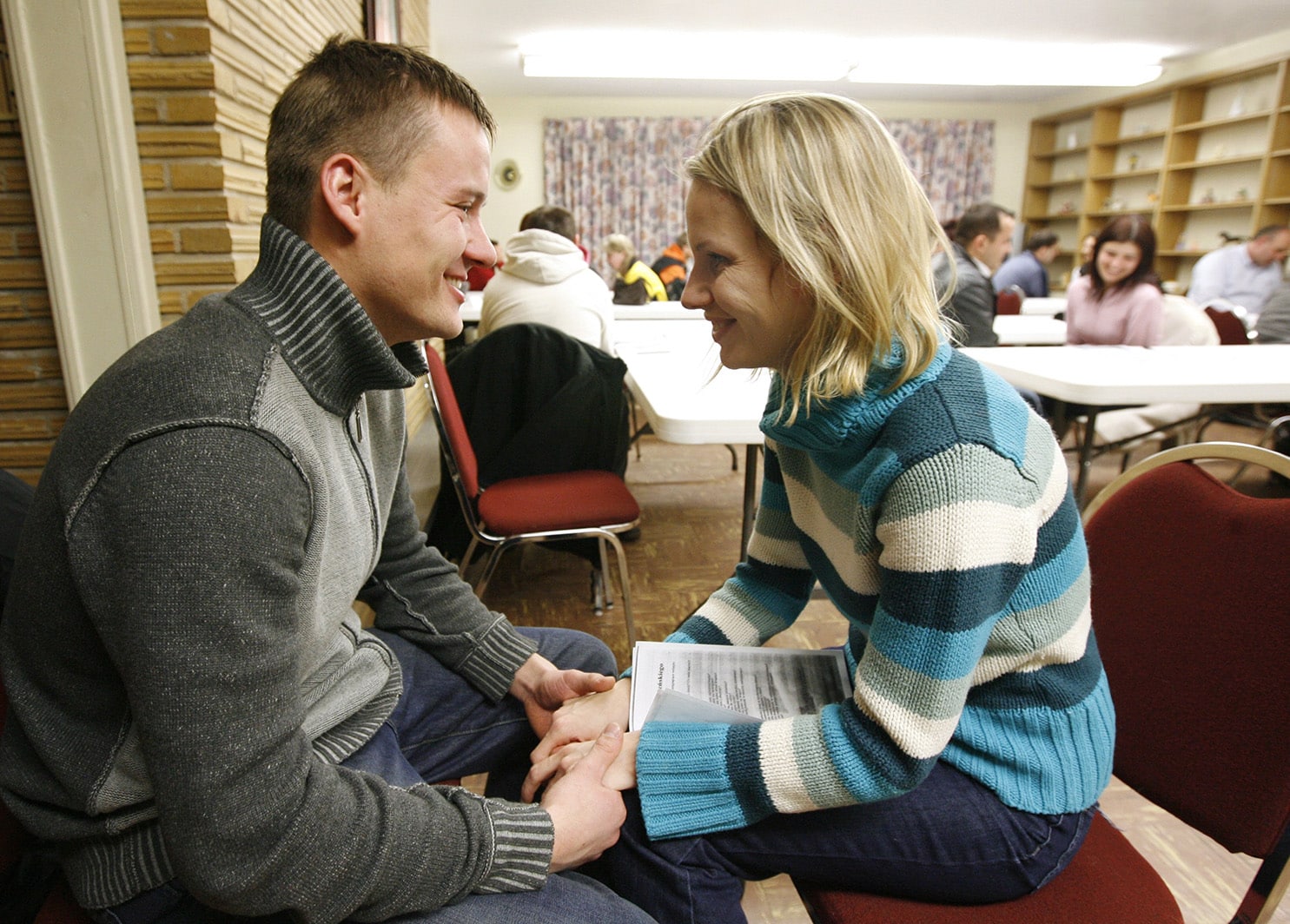Years ago, a colleague and I were approached by folks who were struggling with how (even whether!) to present the Church’s teaching on family planning in marriage preparation. The mere introduction of the topic, they recounted, led to crossed arms and blank eyes. The presentation did not seem to help the couples and the presenters worried that the rejection of this element lessened their credibility in other areas.
A significant majority of couples in Catholic marriage preparation programs are not wholeheartedly committed to a Catholic sexual ethic. In general, presenters are not simply speaking with couples who plan to use artificial methods of contraception, but with couples already using such methods. This is not an enviable position.
Presenters walking into such situations thinking they must convince people, in an hour or two, of something those people do not want to be convinced of can expect many failures and few successes. But perhaps there are other ways of framing this?
What if presenters imagined their audience as a group of people of good will who find themselves in an awkward position? The majority of those present have never heard an accurate description of Church teaching on this matter, let alone a compelling explanation. Yet they are preparing to be married in a community that considers something most of them take for granted to be a grave evil.
A right to hear the Church’s teaching
When I speak at marriage preparation sessions, I start by suggesting that it is not fair for couples to be married in a Church that says they are doing something wrong and never gives them an explanation. They have a right to hear what the Church thinks on this matter. What they do with that information, I make clear, is not up to me. It is my job to give them the clearest and most accurate explanation I can. It is their job to integrate it in their own lives according to their own best understanding and conscience. The Church proposes; it does not (and cannot) impose.
Some might worry that this leaves the door to dissent cracked a little too wide. But the fact is that there is no way to slam and bolt that door. The Church has no other option but to engage people in their freedom and responsibility. In using this approach, though, I have felt the energy in the room change from defensiveness to curiosity. This is clear in the body language of the audience, their willingness to laugh, their knowing glances at one another. Give people permission to disagree, and they just might give themselves permission to agree.
A second element to this approach is not to frame the whole presentation as an all-or-nothing question about artificial contraception. Yes, we want to convince as many couples as possible of the wisdom of Church teaching here. But there is also plenty of wisdom concerning the integration of physical intimacy in the context of a healthy relationship, including its potential for new life, to be had even for those who remain less than fully convinced about the Church’s rejection of artificial contraception.
In my presentation, I choose to save the particulars about natural family planning and artificial contraception for a second talk. First, I find it helpful to address the couples’ attitudes towards both physical intimacy and children. There are plenty of false and harmful ideas about both of these matters they are likely to have picked up from the broader culture.
A vision that brings happiness
The thing is, when they are not in defensive mode about contraception, I have found it relatively easy to propose healthier, more integrated approaches to both physical intimacy and to children. What couples have seen from the culture on these fronts is less than appealing; they can often identify how their own lives and relationships have been made more difficult by prevailing attitudes.
Physical intimacy that is abstracted from the framework of a loving committed relationship does not make people happy. And speaking about children as if they are products or rights or accidents rather than gifts, as is all too common, is easily recognized as dehumanizing. The Church’s vision here often comes to these couples as a relief, a respite from something that wasn’t working for them, though they did not know there were other options.
This first talk, then, sets a framework in which the Church’s teaching on family planning can be understood as an outworking of ideals these couples can affirm and aspire to. This makes the second talk much more accessible. But even if that second talk does not fully achieve its objective in every case, couples who take the first seriously have learned things of real value for their lives together.
Over time, that wisdom may lead to a reconsideration of Church teaching on other matters. Or it may not. But no one suggests that we not teach conflict resolution (or finances, or anything else) just because people fail to live out what they learned in every detail. When we deal with real people in real relationships, even partial wins are real wins.





